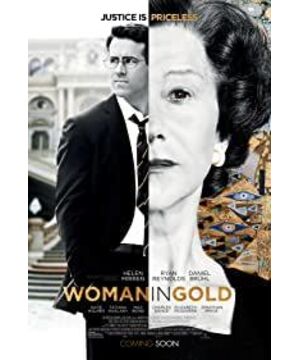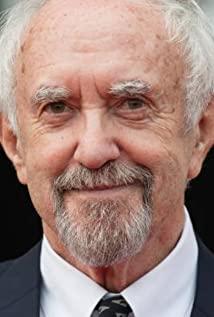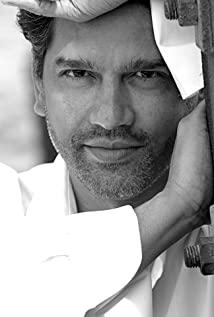I was fortunate to have seen Portrait of Adele Bloch-Bauer I at the Neue Gallerie in New York on a winter morning. Klimt’s paintings should be viewed from a suitable angle on the spot-a popular reproduction of the machine age. It is difficult to convey the golden sparkle of Klimt's original work.
"Woman in Gold" successfully compiled memories, history, and dispute settlement together. This is a moment of history that Randy said in the movie is true — the case affected the entire international art market and allowed more Holocaust survivors to file their requests — righting the wrongs.
This article attempts to briefly sort out some technical knowledge of the Republic of Austria v. Altmannn case. I have translated most of the terms myself, which is not necessarily accurate. I hope to correct them.
The core of this case in the US court litigation stage is whether the US law has retrospective jurisdiction over the actions of foreign sovereignty / whether the US law can be retrospectively enforced.
1. At the beginning of the film, Randy and Altmann tried to apply for the return of the painting through the Restitution Committee. According to my understanding, this return committee uses administrative means to resolve disputes. The restitution committee believes that the Austrian museum's method of obtaining Klimt's paintings is legal-the uncle is legally obliged to execute his wife's will, and his wife hopes to donate the paintings to the Austrian museum. The Austrian authorities decided that the painting belonged to the country.
2. Randy and Altmann later wanted to settle their dispute through litigation in Austrian courts. However, due to the excessively high market valuation of the disputed paintings in this case, the filing fee required by Austrian law was too high. Randy and Altmann cannot afford the cost. Randy and Altmann applied for a lower registration fee. Correspondingly, the Austrian court decided that the registration fee should be Altmann's property (available assets). The Austrian authorities appealed and requested that the registration fee be set at the highest level. Randy wrote to once again request the Austrian authorities to reduce the registration fee and so on. The Austrian authorities delayed for several months. In contrast, the film emphasizes that the registration fee in North America is only $165.
3. Randy decides to leave his big law firm. In view of the fact that Randy’s legal fees could not be borne by the hostess, Randy and Altmann reached a contingency fee agreement-in this case, the host will receive part of the final result as income instead of the usual hourly calculation.
4. In fact, in another step, if Randy and Altmann were able to find people willing to invest in this case (third-party funders), similar to Mr. Lauder who appeared later (yes, Estee Lauder belongs to his family). In fact, it is possible for Randy and Altmann to proceed with litigation through similar financing methods. There have been more and more companies engaged in similar dispute investment business in recent years, and the market has become more mature. Its profit means is to gamble on possible legal claims and compensation.
5. In the next step in the movie, Randy had an idea. He bought a catalog of the Belvedere Museum at Barnes & Noble and asked for a small ticket. This step is to establish the Belvedere Palace (as part of the Austrian government) with commercial activities in the United States, which establishes a ratione personae .
6. Next is the highlight of this case: 1.) In the United States and in international law, traditionally you cannot sue in the courts of one country in another country. This is because in European tradition, no head of state (king/emperor) of a country, a symbol of the sovereignty of that country, can submit to the courts of another country. The development of this theory to this day is the immunity of sovereign states. What needs to be distinguished here is that not all behaviors can be exempted, only in the exercise of sovereignty ( Jure Imperii) , commercial behavior can not be exempted-of course, state-owned enterprises are now a problem studied in international investment law. 2.) The US approach before the promulgation of the Foreign Sovereign Immunities Act (FSIA) was to grant foreign sovereignty absolute immunity based on “grace and comity on the part of the United States.” 3.) FSIA US law only, to provide subject matter jurisdiction ( , ratione REINFORCED PLASTICS law) is.
7. First litigate in LA District Court. LA Court believes that 1.) The FSIA that took effect in 1976 in the United States is retrospective, so it satisfies the temporis jurisdiction ( ratione temporis) . 2.) FSIA's expropriation exception is satisfied. Austria’s actions violated the relevant regulations of The 1907 Hague Convention (IV) related to expropriation during the war, and it is suspected of violating the related regulations of The Washington Principles at the same time.
8. The Ninth Circuit Court of Appeals rejected Austria’s application for a reopening. Austria continues to appeal to the Supreme Court.
9. The Supreme Court confirmed the application of the Court of Appeal for Austria’s rejection of the request for sovereign immunity The state immunity framework for all acts of sovereignty, including past acts of the state. FSIA is retrospective and allows Randy and Altmann to resolve the attribution of paintings by suing the Austrian government.
10. Randy and Altmann reached an agreement with the Austrian government to settle the dispute through arbitration. This involves my expertise. In addition to the emotional factors of arbitration in Austria proposed by Randy and Altmann in the movie, the advantages of arbitration over litigation are: 1.) Arbitration is based on the willingness of the parties. In principle, both parties need to execute the ruling voluntarily. If litigation in the United States, enforcement of the judgment in Austria will be very complicated. 2.) Arbitration is the final decision. After the ruling is made, there will be no series of appeals and litigation costs. 3.) Arbitration can reduce costs by controlling the duration of the procedure and all aspects of the procedure (language, applicable laws, etc.). 4.) The arbitration award is only valid for both parties to the arbitration, and will not be binding on the third party and subsequent cases. In other words, the ruling will theoretically not affect the Austrian court's decision on similar cases in the future.
11. In the arbitration stage, it is finally determined that the aunt's document is only a will (wishes) and not a will (will), and has no legal effect. After studying the collection certificate and the documents left by Altmann's father as the executor of the will, the arbitrator believed that the owner of the painting was an uncle. The uncle’s will left the paintings to his family, including his last family, Altmann. The way the Austrian Museum obtained these paintings violated the wishes of the owner and violated international law. The purchase of the Austrian museum is not a bona fide purchase/good wish purchase. Except for one of the five paintings of the uncle, the uncle had donated it to the Austrian Museum before the Nazis came, and the others should be returned to Altmann.
12. So Randy and Altmann won. The Randy case became famous, and part of the proceeds from the case was donated to the Holocaust Memorial in LA. The case directly caused many artworks related to Nazi confiscations to no longer enter the United States, and indirectly prompted Holocaust survivors to speak out in other areas and demand justice. After the case, the French Railways (SNCF) and the Dutch Railways (NS) successively apologized to the survivors of the massacre and paid huge compensations.
_____________________
Glossary:
The 1907 Hague Convention (IV) is the "Convention on the Laws and Practices of Land Warfare" (The 4th Hague Convention of 1907) and its annexes adopted during the Second Hague Peace Conference (June 15-October 18, 1907) Charter of Laws and Practices of Land Warfare. The convention prohibits robbery and illegal expropriation in armed conflicts.
The Washington Principles on Nazi-Confiscated Art / "The Washington Principles on Nazi-Confiscated Art", referred to as The Washington Principles, is a statement adopted in Washington, DC, USA in 1998. The statement encouraged governments to resolve issues related to the confiscation of artworks by the Nazis and prompted the Austrian government to establish a return committee to provide alternative solutions to disputes over ownership.
_____________________
A little bit of thoughts after watching the movie:
1. Impunity
At first, Austrian officials believed that the illegal acts in its history could be forgotten and forgiven. No one can pursue his past mistakes, because no one has enough resources to pursue his historical mistakes. The corresponding concept of all this in international law is impunity.
Since you have such resources, why not bully the weak? Why not humiliate a preschooler in law and an old woman who is going to die? The motivation for doing this can be arrogance, or just being too lazy to make a difference.
The ideal of some legal professionals is probably to use the law as a set of tools to fight impunity.
It's a pity that in reality, speaking of an old-fashioned stalk, many dragon slayers eventually became evil dragons. Martti Koskenniemi criticized that International Humanitarian Law teaches people how to kill with impunity.
2. The Old World and the New World
The United States and Europe in the movie are not too different from the real life. Europe is the seat of elegant life. Those beautiful buildings, dances, museums, good drinks. Europe is a foreign land that cannot be integrated into.
In film and reality, Altmann's uncle's house is located in Elisabethstrasse 18, Vienna's museum district, within walking distance to the Leopold Museum and the Kunsthistorisches Museum, both of which have the collections of Klmit and Shiele.
The United States in the movie is the same as it is in reality. Life is actually pretty rough. Most good tastes are actually derived from European traditions. However, the United States is where the hope lies. The United States has opened its arms to welcome those suffering.
Money can shape the American dream. Only powerful people can make history.
_____________________
references:
1. Wikipedia related entries.
2. Burris, DS and Schoenberg, ER, 2005. Reflections on Litigating Holocaust Stolen Art Cases. Vand. J. Transnat'l L. , 38 , p.1041.
3. Choi, S., 2005. The Legal Landscape of the International Art Market After Republic of Austria v. Altmann. Nw. J. Int'l L. & Bus. , 26 , p.167.
4. Shapiro, ST, 2008. How Republic of Austria v. Altmann and United States v. Portrait of Wally Relay the Past and Forecast the Future of Nazi Looted Art Restitution Litigation. William Mitchell Law Review , 34 (3), p.6 .
View more about Woman in Gold reviews











